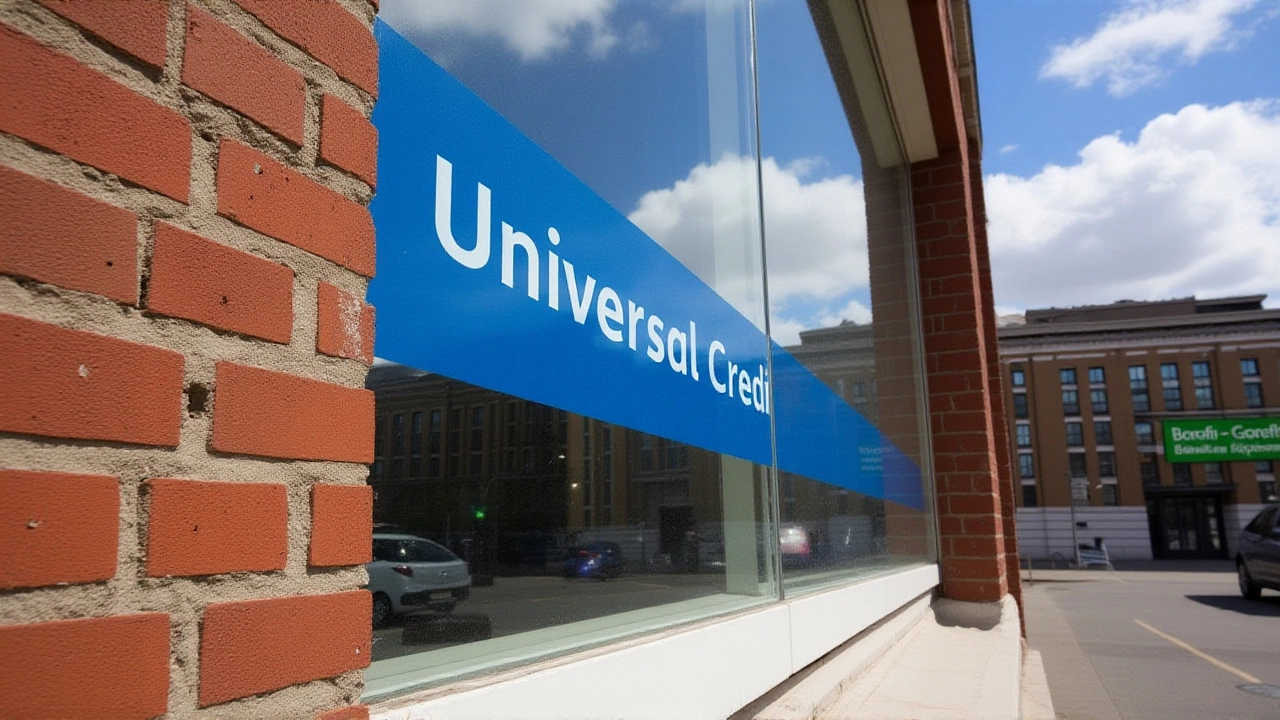The Department for Work and Pensions has confirmed that millions of UK benefit recipients will receive their annual Christmas Bonus of £10 before the holiday season — but the payment dates are shifting again, with conflicting guidance leaving many confused. The bonus, a tax-free one-off payment made since 1972, will go to those receiving qualifying benefits during the first full week of December 2025. Yet while the amount remains unchanged, the timing of payments due on Christmas Day and Boxing Day is under debate: The Independent says payments will move to December 24, 2025, while Meyka.com claims they’ll be pushed even earlier to December 22. The truth? The DWP hasn’t officially settled on a date — and that’s exactly the problem.
Who Gets the £10 Christmas Bonus?
You don’t need to apply. If you’re receiving one of 13 qualifying benefits during the qualifying week — the first full week of December 2025 — the £10 lands in your account automatically. Look for the reference ‘XB’ or ‘DWP XB’ on your bank statement. Eligible benefits include Personal Independence Payment (PIP), Disability Living Allowance (DLA), Pension Credit, Carer’s Allowance, Attendance Allowance, and Employment and Support Allowance. Couples living together who both qualify will each get the payment. It’s simple, straightforward — if you’re on the list, you’re paid.
But here’s the catch: Universal Credit claimants are excluded. Not because they’re less deserving — but because the scheme was designed before Universal Credit existed. The rule hasn’t been updated since 2013, when the benefit replaced Jobseeker’s Allowance and Income Support. Advocacy groups like NCTPC.org have pushed for inclusion, but the DWP has never responded.
Why the Date Confusion?
The DWP follows a standard rule: if your payment falls on a weekend or bank holiday, it’s moved to the last working day before. That’s why Christmas Eve — December 24, 2025 — makes sense as the default. But December 24 is a Wednesday, and the following day, December 25, is Christmas Day — a bank holiday. So why would some sources say payments arrive on the 22nd?
Turns out, the confusion stems from how banks and payment processors handle multi-day holiday blocks. If the DWP sends bulk payments on December 22, it ensures funds clear before the three-day weekend (Dec 24–26), including the Christmas Eve bank holiday in Scotland and Northern Ireland. Some local councils and payment providers may be ahead of the curve, pushing funds earlier to avoid weekend delays. The GOV.UK page on benefit payments says, “You’ll usually be paid on the working day before,” but adds a crucial line: “This may be different for Child Benefit.” That’s the loophole. It’s not just about the DWP’s schedule — it’s about how banks interpret it.
The £10 That’s Lost £100
Since 1972, the Christmas Bonus has stayed at £10. Adjusted for inflation, that’s worth about £115 today. No government — Labour, Conservative, or Coalition — has raised it. Not even during the 2008 financial crisis or the 2022 cost-of-living surge. The DWP argues it’s symbolic — a “gesture,” not a lifeline. But for a pensioner living on £100 a week, £10 buys a week’s worth of heating, or a new pair of winter boots. For a disabled person relying on PIP, it might cover a taxi to a hospital appointment.
“It’s not about the money,” said Sarah Jennings, a former DWP caseworker now with the National Benefits Network. “It’s about dignity. When you’re told you’re getting a Christmas bonus, you expect something that feels like recognition — not a relic from the Nixon era.”

What Else Is Changing in December 2025?
While the bonus stays frozen, other payments are moving. Financial analysts predict a 4.8% State Pension increase in April 2026, following the triple lock. That’s not confirmed yet — Chancellor Reeves must announce it in the Autumn Budget. Meanwhile, PIP recipients are already seeing higher daily living and mobility rates under a 2024 review. Some are reporting larger-than-expected payments this fall — but that’s not the Christmas Bonus. That’s a separate, long-overdue adjustment.
And here’s the odd part: Ecoportal.net reported that “a Christmas payment will arrive soon, and it will be larger than initially expected.” That article was misinterpreted by many. It was referring to PIP rate hikes, not the bonus. Yet social media has turned it into a viral myth: “The DWP is secretly giving everyone £50!”
What’s Next?
The DWP typically releases final payment dates in early December. Until then, recipients should:
- Check their bank account for the ‘XB’ reference
- Verify their benefit status during the first full week of December 2025
- Ignore rumors — if it’s not on GOV.UK, it’s not official
- Call the DWP helpline if their payment doesn’t arrive by December 26
For those who don’t qualify — and that includes Universal Credit claimants — the message is clear: the system is outdated. The bonus was never meant to be a financial lifeline. But in today’s economy, it’s become a symbol of neglect.

Background: A Bonus That Time Forgot
The Christmas Bonus was introduced in 1972 under Prime Minister Edward Heath, as a one-off £10 payment to pensioners. It was expanded in 1988 to include disability and carer benefits. No government has ever increased it — even when inflation hit 10% in 2022. The policy has survived four prime ministers, three recessions, and a pandemic. It’s not controversial. It’s just forgotten.
Even the name is misleading. It’s not a “bonus.” It’s a statutory payment. The DWP doesn’t have discretion to withhold it — if you qualify, you get it. But the lack of investment in its value speaks volumes.
Frequently Asked Questions
Who qualifies for the £10 Christmas Bonus in 2025?
You qualify if you receive one of 13 specified benefits — like PIP, DLA, Pension Credit, or Carer’s Allowance — during the first full week of December 2025. You must also be ordinarily resident in the UK, Channel Islands, Isle of Man, or Gibraltar. Universal Credit claimants are excluded, even if they receive other qualifying benefits.
Will the £10 bonus increase in 2025?
No. The amount has remained £10 since 1972. Despite inflation reducing its real value by over £100, the government has made no announcement to raise it. Advocacy groups have repeatedly called for reform, but the DWP has consistently cited budget constraints and the symbolic nature of the payment.
When will the Christmas Bonus be paid in 2025?
Payments are expected between December 22 and December 24, 2025, depending on how banks process the DWP’s bulk transfers. While GOV.UK suggests payments move to the day before a bank holiday, some providers may pay earlier to ensure funds clear before the Christmas weekend. Final dates will be confirmed by the DWP in early December.
Why are Universal Credit claimants excluded?
The Christmas Bonus was created in 1972, decades before Universal Credit was designed. When UC replaced legacy benefits in 2013, the bonus rules weren’t updated. The DWP argues UC already includes a cost-of-living component, but critics say this ignores the bonus’s symbolic role and its automatic, non-means-tested nature.
How do I know if I’ve received the bonus?
Look for ‘XB’ or ‘DWP XB’ in your bank statement. The payment is automatic and doesn’t appear as a separate notification. If you’re eligible and haven’t received it by December 27, contact the DWP helpline immediately — delays are rare, but possible due to bank processing.
Is the Christmas Bonus taxable?
No. The Christmas Bonus is tax-free and doesn’t affect other benefits or your income tax liability. It’s treated as a non-means-tested payment, meaning it won’t reduce your Universal Credit, Housing Benefit, or any other support you receive.

